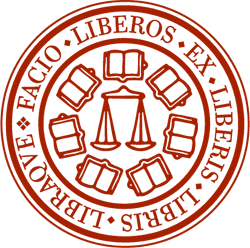Etymological Misinformation
From a comment by ‘LiberalGoodman’ on this post at Captain’s Quarters (the 13th, dated 7-05 at 6:42 pm):
This book is another illustration of the fact that “conservative intellectual” is an oxymoron. To be an intellectual, you have to read books, (“liber”, the Latin for book, is the root of liberal).
Both sentences are dubious, at best, and the parenthesized statement is demonstrably false. The Latin word for book has nothing to do with the English word ‘liberal’.
The noun liber, ‘book’, has a short i, and is pronounced roughly ‘lib-ehr’. The plural is libri (two syllables), and most of the forms drop the e. This liber is the root of the word ‘library’.
The adjective liber, ‘free’, has a long i, and is pronounced roughly ‘leeb-ehr’. The plural is liberi (three syllables), and the e is kept in every form. This liber is the root of ‘liberal’, ‘illiberal’, ‘liberate’, and some other words. Just to confuse things, the plural liberi is a noun meaning ‘children’ as well as an adjective meaning ‘free’, and there is another libr- word, libra, ‘balance, set of scales’ (as in the constellation), whose plural is librae. To further confuse things, in Latin books are masculine, scales are feminine, children are both (if you want to specify, you have to use a different word), and a person or thing that is free may be any gender.
Though spelled the same and therefore alphabetized together, short-i liber and long-i liber are no more related than ‘nice’ (the English adjective) and Nice (the French city) or ‘job’ (as in work) and Job (in the Bible), or ‘salamis’ (from the deli counter) and Salamis (the island facing Athens). English does usually spell or capitalize unrelated words differently when they are pronounced differently, which helps.
The seal of my alma mater, St. John’s College (Annapolis), puns on the four different meanings of the three words, long-i liber, short-i liber, and libra:

The motto facio liberos ex liberis libris libraque means ‘I make free people out of children with books and a scale’, with the seven books (libri) representing the seven liberal arts and the scale (libra) the sciences. Since liberi, the plural of long-i liber, has two meanings, the motto is fatally ambiguous: it could just as easily mean ‘I make children out of free people’ or ‘children out of children’ or ‘free people out of free people’, and I can think of classmates in all three categories.
1 Comment
RSS feed for comments on this post.
Sorry, the comment form is closed at this time.


I jumped over here from the About History site, and I’m not familiar with this weblog or Dr. Weevil, but I do know St. John’s. So who is Dr. Weevil? Or is that a secret? – paul hartel
Comment by Paul Hartel — Tuesday: July 12, 2005 @ 12:08 AM GMT-0500